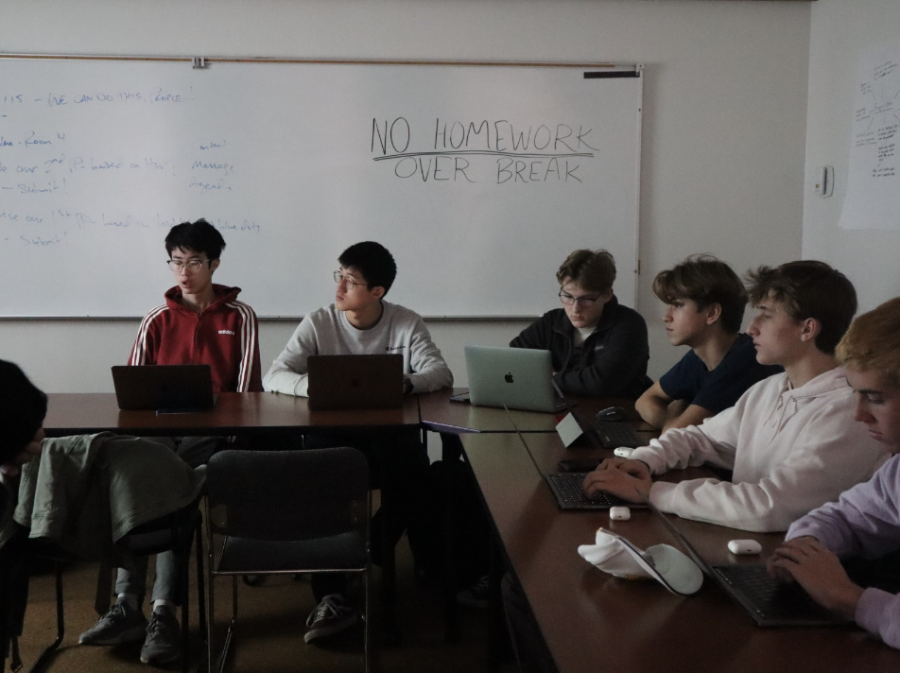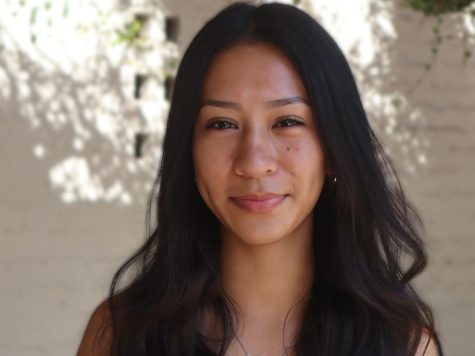The clock ticks slowly forward until the moment arrives. G block has just reached its end, and boarders can barely contain themselves as they shove clothes and toiletries into suitcases, ready to fly away into a week-long break.
As they settle into their homes and vacation spots, a small notification breaks their Thanksgiving break haze: a Canvas notification.
Webb’s strict policy not to assign homework over breaks ensures that students are relaxing during their well-deserved days away from school.
“[The] policy is that students should not have any work due the first rotation of classes back from break,” said Sarah Lantz, Dean of Students. “You can’t assign homework over break.”
Although teachers adhere to this policy, most students will find that their Canvas calendars are dotted with summative assignments that all seem to line up during the three-week period between Thanksgiving and Winter break.
This begs the question: can a student fully relax and fulfill all their academic commitments when deadlines and responsibilities are impending? Or do those sneaky Canvas assignments only create anxiety? Do we need to begin studying or drafting that essay while our families eat juicy slices of turkey?
The schedule itself makes perfect sense. As Thanksgiving break occurs just three weeks before a much longer Winter break, these three weeks are full of holiday parties, last-minute homework stress, and quick moments to reconnect with friends and teachers.
However, with the semester ending only two weeks after students come back to school from break, it only makes sense to push a few class finals to the end of December, leaving students with no choice but to either throw themselves straight into late nights of studying or prioritize sleep by beginning assignments over break.
The timing of the breaks and the deadlines looms over our heads, making it impossible for students to grapple with this paradoxical “no-work” policy while also having multiple finals in the coming weeks.
So, should we have some work over breaks? It seems that all these factors lead to a conclusion of assigning a small amount of work over breaks to not only better prepare students for their sudden return to schoolwork, but also to relieve them of some of the stress of summatives.
“As a parent and a teacher, I don’t think it’s the worst thing to get a small assignment over break,” Dean Lantz said. “They might like to read, or do an IXL, not a ton of pressure.”
However, we should recognize that there are some students that experience different workloads than others. Juniors are entering their first year as upperclassman, juggling multiple new classes and familiarizing themselves with the Advanced Studies course workload. Seniors need to work on college applications, facing the pressure of maintaining high grades, and grappling with the mixed feelings of growing up.
There are many possible solutions to this policy of no work over breaks, but as the end of the semester nears, it is difficult to feel anything but anxiety with our final report cards constantly on our minds with each moment of poor performance in classes.
We appreciate the effort to make our breaks relaxing and free of work, but perhaps instead of cramming finals into the three weeks before break, we could make use of the two week end to the semester in January, spreading out the humanities and STEM classes between the cumulative five weeks of classes.
There was an effort to create a split and have the STEM courses push up their summatives to December, and have the humanities courses assign final essays during January, but unfortunately, this did not take place. Students continue to lack balance in their finals.
We hope that students can use their break time wisely to reconnect with friends, family, and themselves. As winter break nears, try to take a moment to reflect, and catch up on sleep. The end of the semester may seem daunting, but with good study habits and leaning into our surrounding community, this obstacle is truly manageable.







![Many Webb students spend their free time in the library watching a popular TV show like Riverdale and Euphoria. “Based off what I’ve seen, like in Euphoria, because the actors are older, they don't showcase an actual high school life properly,” Sochika Ndibe (‘26) said. “Since [the actors] are older [and] playing a teenager, from a girl’s perspective, it is going to make you think you should look more developed at a young age.” The actor, who plays Veronica Lodge, was 22 years old at the time of filming.](https://webbcanyonchronicle.com/wp-content/uploads/2025/03/Antecol-Media-affects-how-society-functions-graphic-1200x900.png)


